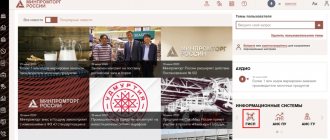Phytosanitary and quarantine certificates: how to obtain and why they are needed
If you are going to export products of plant or animal origin from Russia, you will need a number of documents not only for the goods themselves, but also for their packaging. At a minimum, you will have to issue phytosanitary and quarantine certificates, otherwise the cargo simply will not be allowed through customs. How these documents differ and how to get them - let's figure it out.
Phytosanitary certificate
This is an international document valid in the territories of the Customs Union, which is issued after regulated plant products have passed phytosanitary control, confirming their safety for consumers.
Of course, the word “quarantine” here has nothing to do with the pandemic. All products that may be contaminated with insects, plant parasites, pathogens, and so on are considered regulated products.
The full list of goods for which a phytosanitary certificate is required has been approved by the Ministry of Agriculture of Russia and the Commission of the Customs Union (dated June 18, 2010, “On ensuring plant quarantine in the Eurasian Economic Union”). In particular, it includes: nuts, fruits, vegetables, legumes, grains, cut flowers, seeds, as well as untreated wood, lumber and even packaging containers (if they are not specially impregnated against pests).
Where to get it: at Rosselkhoznadzor (can be obtained through the Unified Portal of State Services) or an authorized body (decision-making period is 3 days from the date of application). The certificate is issued free of charge.
Required package of documents for registration:
— Statement of the established form;
— Information about the applicant (identity document);
— Conclusion of VKNIIR on the quarantine phytosanitary state of products (done on the basis of product samples);
— KFO Act on quarantine phytosanitary disinfection of products, subject to requirements by the legislation of the Russian Federation or the exporting country (the procedure is carried out by private licensed companies);
— A copy of the agreement (contract), which is the basis for the export of products outside the Russian Federation (provided that such have been concluded).
During the registration process, additional documents may be required.
The certificate is valid for 15 days.
Please note that a phytosanitary certificate must be obtained for each batch of goods (car, ship, wagon, etc.).
Quarantine certificate
This is a mandatory document that is required for the import, export or movement of regulated products - exclusively within the territory of Russia.
It will be required at a minimum to deliver the goods to (or from) customs. Without it, you do not have the right to transfer products even from one region to another. The fine for lack of a certificate is up to RUR 30,000. If the violation is repeated, the goods may be confiscated.
Just like a phytosanitary certificate, a quarantine certificate is issued for each batch of goods.
Where to get it: at the territorial office of Rosselkhoznadzor at the place of shipment (before the products are sent to another region). Preparation time is from 3 to 12 working days.
Required steps for registration:
— First of all, you need to contact an expert company to conduct laboratory tests. The agronomist will take the required number of samples at the production site or storage location of the goods, and then issue an expert opinion.
— A complete package of documents is submitted to Rosselkhoznadzor (possibly through the EPGU) (attention: they will find fault with any mistake!). The list of required documentation changes periodically, but you will certainly need:
1) a statement of the established form;
2) identity card;
3) as well as a document confirming the implementation of preventive phytosanitary disinfection of warehouses intended for storing regulated products declared for import, in accordance with the rules and regulations for ensuring plant quarantine.
The service is provided free of charge.
The certificate is valid for 14 days.
The transportation of some goods does not require delay, and refusal to issue one of the certificates can cost you a decent amount (comparable to the cost of all products), so be very careful when preparing documents or contact professionals.
––––––––––––––––––––––––––––––––––––––––––––
You can contact Unilog specialists by phone: +7 (495) 980-80-11.
How is certification carried out?
The issuance of a certificate may require inspection of the export item by an authorized official to confirm its compliance with existing hygiene standards (primary and secondary quarantine inspection). If the product meets the requirements, the specialist certifies the batch with the inscription “Checked, no quarantine objects were found, sale is permitted” and the corresponding stamp of the State Quarantine Service. Today, most government departments require shippers to apply for phytosanitary certificates online. However, physical paper documents are also often required.
Procedure and features of customs clearance
The customs authorities must be notified of arrival at the customs control point within 30 minutes. The following are submitted to the customs service:
- declaration, which includes information about the manufacturer, importer;
- statutory documents of the organization;
- invoice;
- commodity and transport documentation;
- foreign trade contract;
- receipts confirming the fact of purchase and the cost of the goods;
- phytosanitary certificate of the country of origin;
- other permits.
Note! Fresh and frozen vegetables must be stored in special conditions, and the former still have a short shelf life.
During customs clearance, the goods are placed in a temporary storage warehouse, where the required temperature conditions are ensured. Temperature requirements are determined based on the information specified in the invoice when accepting vegetables to the temporary storage warehouse.
To reduce the likelihood of delays at customs, documents are prepared in advance, and before the customs clearance procedure, the information is carefully checked:
- are there any inconsistencies;
- are there any factual errors or typos;
- whether the data differs in different documents.
If any of the above is discovered by a customs inspector, he has the right to impose a fine or detain the cargo at customs until the violations are eliminated or the fine is paid.
The most common errors include inconsistencies between addresses and names in documents, typos and unnecessary punctuation marks or words, abbreviations, incomplete addresses, and indication of the address in only one language. In addition to fines and delays at customs, errors in documents can result in:
- costs associated with longer storage in a warehouse;
- import ban;
- confiscation of cargo.
Vegetables are a preferential product. This means that some countries enjoy relaxations in the payment of customs duties. These are states with developing economies. Preferences are provided on the basis of a certificate of origin. It can be of several forms: ST-1, ST-2, Form A, depending on the state. Preferences without a certificate of origin are not provided. Registration is carried out according to general rules.
The main stages of customs clearance are a comprehensive verification of information and documents, customs inspection of cargo and transport. They are carried out only after customs duties have been paid. The duration of customs clearance, if all documents are in order and there are no complaints about the goods, rarely lasts more than a day. If the customs clearance procedure is carried out by a customs representative, the time frame is reduced as much as possible. Thanks to the cooperation of SB Cargo specialists with representatives of customs structures at Sheremetyevo Central Customs Office, Domodedovo and other customs points, customs clearance of vegetables can be completed in 3-5 hours or even faster.
Other certificates
Obtaining a fire certificate for lumber is also not necessary. But if you do it, it will only be an additional advantage of your product. After all, this will mean that your timber is safe for human life and health. And if the wood catches fire, no toxic substances will be released. This procedure increases the competitiveness of the enterprise. Fire certification is carried out by specialized bodies that have previously received accreditation from the Russian Ministry of Emergency Situations. In this case, after all the necessary laboratory tests have been carried out, the manufacturer will be issued a fire safety test report for lumber.
Fire certificate for timber
For a domestic manufacturer, you can also issue a passport in the ISO international standardization system. In this case, the lumber is checked for compliance with international standards, and not just our GOSTs. International ISO certification has a number of positive aspects. Namely:
- after receiving this document, we can talk about the stable quality of lumber;
- this means that the production process of creating a product is optimized as much as possible, and costs are reduced to a minimum;
- The confidence of the construction market in the products of such a manufacturer increases significantly. If he invests money in his production, then the lumber is of the highest quality;
- ISO certification is a mandatory condition for participation in the tender, especially if this is done at the state level. That is, the products will be used in government orders;
- This is not a recommendation, but a necessary condition for increasing the competitiveness of lumber if they are sold outside the country.
International ISO certificate
Today, it is not enough to conscientiously comply with all GOSTs and rules for the production of lumber. It is necessary to constantly prove the quality and safety of your product, and confirm everything with documents. And receiving a phytosanitary certificate for wood products confirms this. After all, laboratory tests will allow us to say for sure that your boards and timber are absolutely safe. And the person who buys such building material takes care of his own life and health and surrounds himself and his family with harmless materials. Additionally, you can create several more certificates, for example, a firefighter or an international ISO standard. Although this is an additional cost, the result will not take long to wait. Now people pay special attention to environmental friendliness, which means they are willing to pay a little more for a truly high-quality product.
What will be indicated in the passport
The phytosanitary passport of the field, issued after inspections, will contain information:
- location of land (cadastral quarter, district, farm);
- field number;
- cadastral area;
- agroecological characteristics (type and composition of soil, varieties and varieties of crops grown);
- predicted agricultural field yield;
- a list of agrotechnical measures that affect the phytosanitary condition;
- types and volumes of agrochemicals, fertilizers, pesticides used;
- accounting indicators for weeds, pests, diseases identified during surveys.
Also, based on the results of the survey, recommendations are issued for carrying out preventive and protective measures in relation to the land. The owner or tenant of the site can order certification. The issued document can be used to create and maintain field history and crop rotation.
Procedure for obtaining a certificate for flowers
The issuance of a certificate for flowers to Russian GOSTs or technical specifications for products is carried out by accredited certification bodies in the generally accepted manner
A certificate for flowers is a permitting document that provides guarantees to consumers regarding the product’s compliance with the norms and standards operating in our country. The certification control procedure is regulated by a number of legislative acts.
Government Decree No. 982 of December 1, 2009 created a list of products that must necessarily undergo confirmation of compliance with Gosstandart standards. Since flowers are not included in this list, a quality certificate is not a prerequisite for their cultivation, use and sale. In fact, these products can be sold without a special permit.
Registration of voluntary certification
In addition to the mandatory declaration, which confirms the safety of such products for a number of general characteristics, there is voluntary certification, which can be carried out after mandatory quality control. It will help the product stand out on the market.
To check the quality of greens and microgreens during voluntary certification, it is not the technical regulations of the Customs Union that are used, but GOSTs and TUs. With voluntary certification, the applicant himself chooses the standards and evaluation criteria. If desired, you can develop individual specifications for growing greens and microgreens and then certify your products.
Having received a quality certificate, the manufacturer will be able to install its brand name on the packaging of its products. The presence of voluntary certification will help the manufacturer participate in government and commercial tenders and receive large and stable orders for greens and microgreens. Having a quality certificate will help a small business increase sales and expand the number of regular customers. Voluntary certificates increase customer loyalty and allow cooperation with large retail chains.








